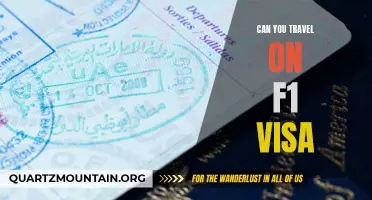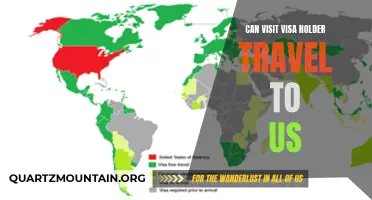
The process of obtaining a visa can be daunting, and even after securing one, there are still many questions that arise. For those holding an F2 visa, a popular concern is whether there is a grace period for travel. Understanding the rules and regulations surrounding the F2 visa and travel is essential for visa holders and their families. In this guide, we will explore everything you need to know about the grace period for F2 visa holders and provide valuable insights to help ease any travel-related worries.
What You'll Learn

F2 Visa Holder's Grace Period on Travel

Overview of the F2 Visa:
The F2 visa is a non-immigrant visa that allows the dependent family members of an F1 visa holder to accompany them to the United States. It provides an opportunity for families to stay together while the F1 visa holder studies in the US. The F2 visa is available for spouses and unmarried children under the age of 21.
Importance of understanding grace period on travel:
As an F2 visa holder, it is essential to understand the concept of the grace period on travel. The grace period is the duration of time before and after the F1 visa holder's program start and end dates when you can enter or leave the United States. This period allows you to properly plan your travel and make necessary arrangements.
Here are some key points to understand about the grace period on travel for F2 visa holders:
Pre-entry grace period:
Before the F1 visa holder's program start date, you are allowed to enter the United States. This pre-entry grace period typically begins 30 days before the program start date. During this time, you can make necessary arrangements, such as finding accommodation and settling in.
Post-exit grace period:
After the F1 visa holder completes their program or is no longer enrolled, there is a post-exit grace period allowing you to stay in the United States for a certain period. This grace period is typically 60 days but can vary depending on the individual's circumstances.
Limitations on employment:
It is important to note that during the grace period, you are not allowed to work or engage in any employment activities. The F2 visa is strictly for dependent family members and does not provide authorization for employment in the United States.
Travel during the post-exit grace period:
If you plan to travel outside the United States during the post-exit grace period, it is crucial to ensure that you have all the necessary documents for re-entry. This includes a valid F2 visa, a valid passport, and a new I-20 form from the F1 visa holder's school indicating their completion of the program.
Maintaining valid status:
To maintain valid F2 visa status, it is important to adhere to the rules and regulations set forth by the United States Citizenship and Immigration Services (USCIS). This includes timely departure from the United States after the grace period and not engaging in any unauthorized employment or activities.
In conclusion, understanding the grace period on travel as an F2 visa holder is crucial for proper planning and compliance with immigration laws. For any specific questions or concerns regarding your F2 visa status, it is recommended to consult with an immigration attorney or the designated school official (DSO) at the F1 visa holder's school.
How to Determine if You Need a Visa to Travel to Italy
You may want to see also

Understanding the F2 Visa
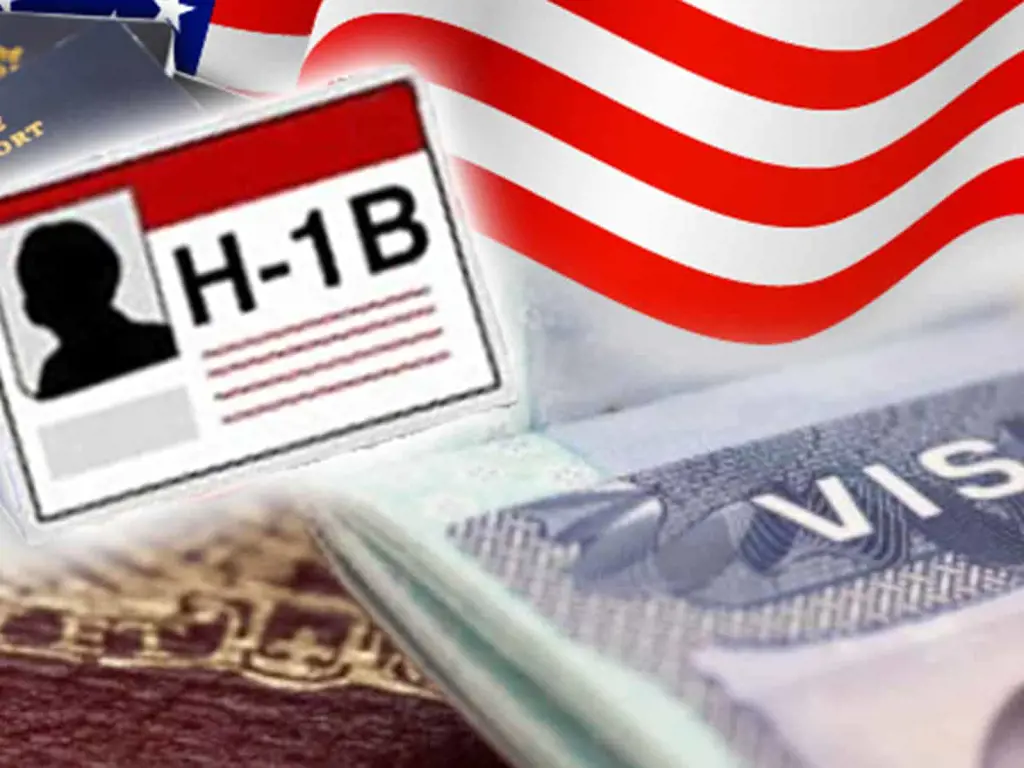
If you're planning to join your spouse or parent who is an F1 visa holder in the United States to continue your studies and be with them, you may want to consider applying for an F2 visa. The F2 visa is specifically designed for dependents of F1 visa holders, allowing them to accompany or join their loved ones in the pursuit of education.
The main purpose of the F2 visa is to promote family unity and support the educational endeavors of F1 visa holders. This means that if your spouse or parent is studying in the US on an F1 visa, you have the opportunity to join them and experience the American education system alongside them.
Eligibility Requirements for the F2 Visa
To be eligible for an F2 visa, you must meet certain criteria set by the United States Citizenship and Immigration Services (USCIS). Here are the key requirements you need to fulfill:
- Relationship: You must be the spouse or child (unmarried and under 21 years old) of an F1 visa holder. This means that if your parent or spouse is not an F1 visa holder, you will not qualify for an F2 visa.
- Valid F1 visa holder: Your spouse or parent must have a valid F1 visa or must be in the process of obtaining one.
- Proof of financial support: You must provide evidence that you have adequate financial resources to cover your expenses in the United States without seeking employment. This can include bank statements, scholarship letters, or sponsorship letters from your spouse or parent.
- Intention to return: You must demonstrate that you have a residence in your home country that you do not intend to abandon. This is to ensure that you do not have the intention of immigrating permanently to the United States.
Rights and Limitations of F2 Visa Holders
While the F2 visa allows you to join your loved ones in the United States, it's important to understand the rights and limitations that come with it. Here's an overview:
- Study: As an F2 visa holder, you are allowed to pursue full-time or part-time study in the United States at an accredited institution. However, you are prohibited from engaging in employment or work-study programs. It's important to note that if you wish to work, you will need to change your visa status to a different category that allows employment.
- Travel: F2 visa holders have the ability to travel in and out of the United States as long as their visa is valid. It is important to maintain a valid visa and have the necessary documentation when entering or exiting the country.
- Dependents: If you have children who are also eligible for F2 visas, they can accompany you to the United States. They will have the same rights and limitations as you as F2 visa holders.
- Duration of stay: The duration of your stay in the United States is tied to the validity of your spouse or parent's F1 visa. You are allowed to remain in the country for as long as your spouse or parent maintains their F1 visa status. If their F1 visa is extended, you can also extend your F2 visa accordingly.
Exploring Chile: Visa Requirements for Australian Travelers
You may want to see also

Importance of Understanding Grace Period on Travel
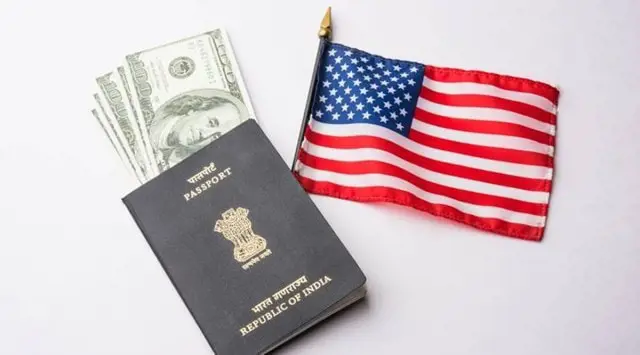
If you are a holder of an F2 visa and planning to travel internationally, it is crucial to fully understand the concept of a grace period and its importance. This article will define and explain the purpose of a grace period and shed light on why knowing the grace period is crucial for F2 visa holders. Understanding these aspects will help you navigate your travel plans and ensure a smooth journey.
Definition and Purpose of the Grace Period:
The grace period is a designated period after the expiration of a visa, during which the visa holder may legally remain in the country without any penalties or consequences. It serves as a buffer period to allow visa holders to make necessary arrangements before leaving the country or to extend their stay legally. The duration of the grace period varies depending on the type of visa.
Why Knowing the Grace Period is Crucial for F2 Visa Holders:
- Avoiding Overstaying: It is essential for F2 visa holders to know their grace period to avoid overstaying their visa. Overstaying can lead to serious consequences, such as being barred from re-entering the country, future visa denials, or even deportation. Knowing the grace period allows F2 visa holders to plan their departure or visa extension in a timely manner, preventing any unintentional violations.
- Legal Status and Protections: By understanding the grace period, F2 visa holders can ensure they maintain their legal status while traveling. During the grace period, F2 visa holders continue to enjoy the rights and benefits associated with their visa category. However, it is important to note that F2 visa holders cannot work or study during the grace period unless they have the necessary authorization.
- Applying for Extensions: In some cases, F2 visa holders may need to extend their stay beyond the initial visa period. Being aware of the grace period allows F2 visa holders to initiate the extension process before their current visa expires, minimizing the chances of a gap in legal status or potential delays in processing times.
- Financial Considerations: Understanding the grace period provides F2 visa holders with ample time to plan their finances and make necessary arrangements before their departure. This includes settling any outstanding bills, canceling subscriptions or memberships, and organizing travel arrangements. By budgeting and managing their finances effectively, F2 visa holders can ensure a smooth transition during their travel period.
Navigating the Grace Period:
To make the most of the grace period as an F2 visa holder, here are some important steps to follow:
- Familiarize yourself with the specific grace period duration associated with your F2 visa.
- Keep track of your visa expiration date to ensure you initiate any necessary actions well in advance.
- Consult with your Designated School Official (DSO) or an immigration attorney for guidance on visa extensions and other related matters.
- Understand the limitations and restrictions imposed during the grace period, such as employment or academic limitations.
- Plan your departure or extension ahead of time to avoid any complications or legal issues.
Understanding the grace period is of utmost importance for F2 visa holders before embarking on any international travel. By knowing the grace period duration, benefits, and limitations, F2 visa holders can confidently navigate their travel plans while maintaining their legal status. Taking proactive steps and seeking professional guidance will help F2 visa holders effectively manage their travel periods and ensure a smooth transition.
Traveling Within the US with an Expired Visa: What You Need to Know
You may want to see also

Does the F2 Visa Holder have a Grace Period on Travel?
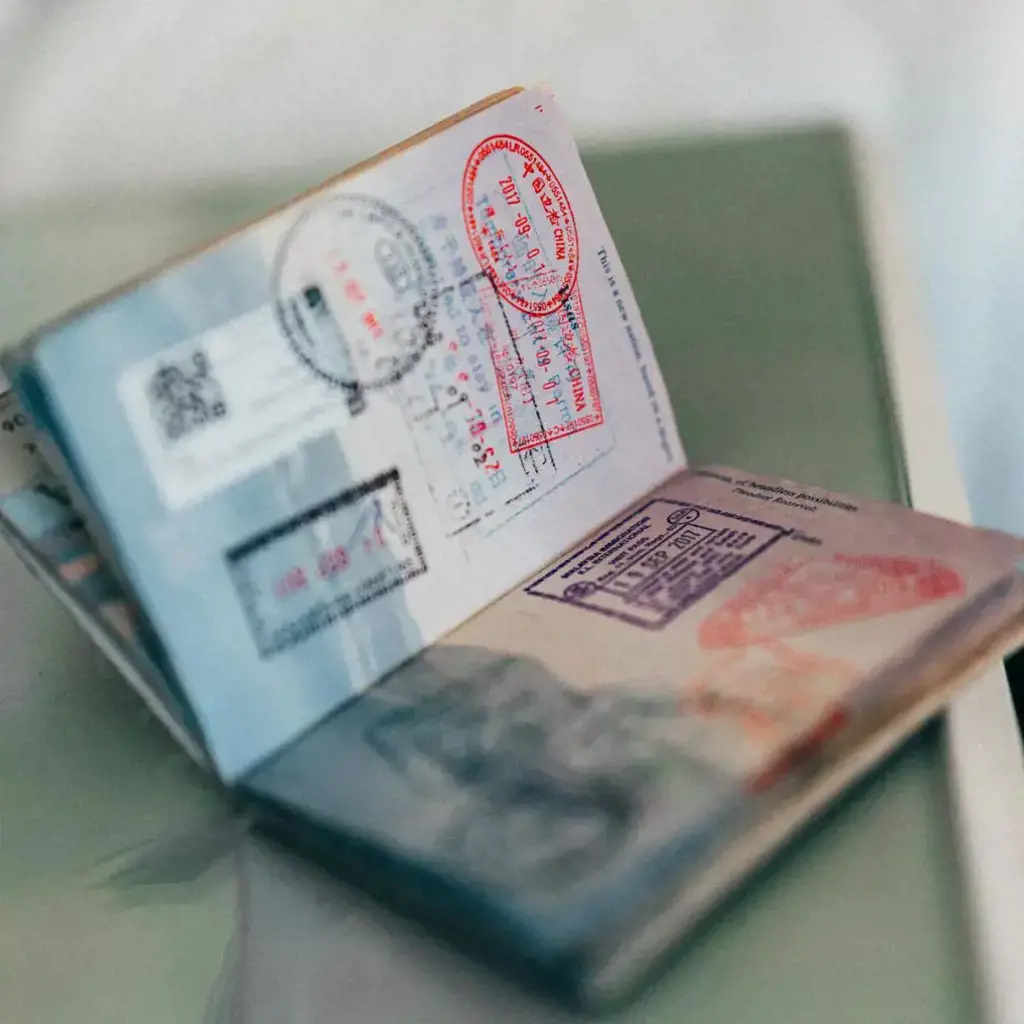
The F2 visa is a nonimmigrant visa that allows the dependents of F1 visa holders to accompany them to the United States. It is important for F2 visa holders to understand the rules and regulations associated with their visa status, including any grace periods on travel.
Explanation of the Grace Period for F2 Visa Holders:
A grace period is a specific amount of time granted to individuals to travel in and out of the United States without the need for a valid visa. This grace period exists for F2 visa holders, allowing them to enter or re-enter the country after a temporary absence, without obtaining a new visa.
Duration and Limitations of the Grace Period:
The grace period for F2 visa holders is generally 30 days. During this time, F2 visa holders can leave and re-enter the United States without any issues. It is important to note that the grace period starts from the day of departure from the United States.
However, there are certain limitations to the grace period that F2 visa holders need to be aware of. First, the purpose of the grace period is to allow temporary travel, not to extend the overall stay in the United States. If F2 visa holders want to stay beyond the grace period, they must either obtain a new visa or apply for a change of status to a different visa category.
Second, the F2 visa holder must maintain a valid F1 visa status for the duration of their stay in the United States. If the F1 visa holder loses their status, for example, by dropping out of school or violating their visa conditions, the grace period for the F2 visa holder becomes invalid. In such cases, the F2 visa holder must leave the country immediately.
Consequences of Exceeding the Grace Period:
If F2 visa holders exceed the grace period, they may not be allowed to re-enter the United States on their F2 visa. Overstaying the grace period can have serious consequences, including being barred from re-entry for a specific period of time or even being denied future visa applications.
To avoid these potential issues, F2 visa holders should plan their travel accordingly, ensuring they adhere to the grace period limitations. It is also important to maintain communication with their F1 visa holder spouse or parent, as any changes to their visa status may directly impact the F2 visa holder's grace period.
In conclusion, F2 visa holders do have a grace period on travel, allowing them to temporarily leave and re-enter the United States without needing a new visa. However, it is crucial to understand the limitations of the grace period and the potential consequences of exceeding it. By staying informed and planning travel accordingly, F2 visa holders can ensure a smooth and legal stay in the United States.
Do American Travelers Need a Visa for Azerbaijan?
You may want to see also
Frequently asked questions
No, an F2 visa holder does not have a grace period on travel. Unlike some other visa types, the F2 visa does not provide a specific grace period for travel purposes. This means that once your visa has expired, you are not allowed to re-enter the United States without obtaining a new visa.
If an F2 visa holder needs to leave the United States, they should plan their travel dates accordingly to avoid overstaying their visa. It is important to be aware of the expiration date on your visa and plan your departure well in advance to ensure that you can re-enter the United States without any issues. If you believe you may need more time, you can consider applying for an extension of your visa.
No, an F2 visa holder cannot apply for an extension while they are outside of the United States. Extensions can only be applied for from within the United States. If you are outside of the country and need to extend your visa, you will need to return to the United States and follow the proper procedures for extending your visa status.
If an F2 visa holder overstays their visa, they may be subject to serious consequences, including being barred from re-entering the United States for a certain period of time. It is important to always comply with the terms and conditions of your visa and ensure that you leave the country before your visa expires to avoid any negative repercussions. If you find yourself in a situation where you have overstayed your visa, it is recommended to consult with an immigration attorney for guidance on how to resolve your status.



